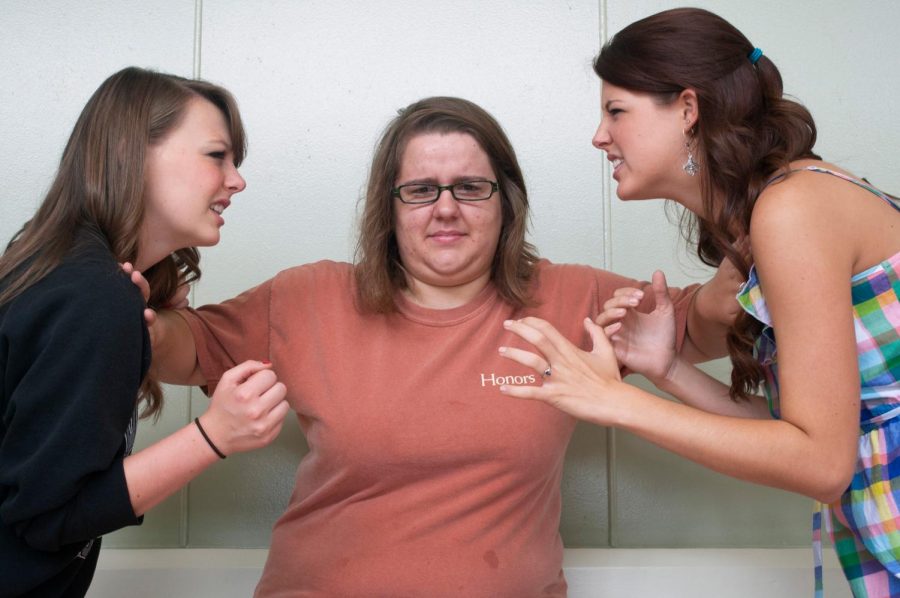Give and take
September 20, 2012
Conflict is something that almost everyone encounters at some point in their lives, and one way of dealing with conflict is through mediation.
Conflict mediation is a service available for UNA students who are having problems.
Kimberly Greenway, director of student conduct and student affairs assessment, said UNA mediates matters such as friendship or romantic situations, roommate misunderstandings or issues involving property, and students can come by or call their office — which handles all conduct and complaints—if they need assistance.
Tammy Jacques, director of student engagement, said that when conflict arises it is usually due to mix-ups or misperceptions between individuals.
“People act out, or they make statements or judgment calls based on misinformation, so it’s important to not make assumptions,” Jacques said.
Jacques said individuals should “sit down and try to understand one another” if there is a difference of opinions, and the mediator needs to be a neutral third party.
A mediator’s goal is to enable the different parties to reach some sort of resolution to their dispute, Jacques said. She said the mediator should not dictate what the resolution will be.
“The resolution of the conflict needs to be owned by the parties involved,” she said.
Mediators do not fix the problem—they simply assist those involved in resolving their own issues, she said.
Greenway said mediating is “a pretty formal process so that you keep things civil.” Mediators are not trying to reconcile relationships—they are trying to help the parties involved to come up with and agree upon the outcome.
Greenway gave the example situation of a student borrowing another’s book, resulting in both students claiming ownership. In this instance, the mediator could ask a question such as “Can you concede the book once belonged to this person?” Questions can help people consider different angles and lead to an eventual agreement.
Jacques said a person trying to mediate a conflict needs to “keep things in perspective and not overdramatize issues” as well as remain neutral.
In Greenway’s department, informal mediation occurs sometimes daily or weekly, but formal mediation usually does not occur more than two or three times a semester.
“(In a formal mediation) when they leave the room there is a written agreement,” Greenway said.
Jacques said student organizations rarely need mediation—maybe once a year. Greenway said mediation is probably used most commonly in Residence Life.
UNA student Travis Dykes said a mediator should try to get those involved in a conflict to compromise.
“Both people have to lose something,” Dykes said. “Conflicts never resolve perfectly.”
Dykes has successfully mediated conflict in the past.
“First I see what each person has a problem with in the conflict,” he said. “Then I analyze it and see what each person could lose or gain, and try to figure out a compromise.”
Dykes said he normally does not have much conflict in his life, but when a dispute does occur, “a lot of conflict comes into play.”
UNA student Dalton Anderton said there are “minimal amounts” of conflict in his life, and that he and his friends “refrain from arguing.”
Anderton said a mediator needs to be reasonable and should be able to read at least some body language.
“A mathematician should be a good mediator because their focus is on solving problems,” he said.
Dykes said one of the worst things a mediator could do is to spread untruthful information about a person that could “inflame the argument or conflict.”
Anderton said a mediator should not add to the dispute by cheering on the conflicting opinions.
Greenway’s advice to students who are trying to mediate a conflict is to make sure they are listening to both the perspectives and emotions that they are dealing with.












